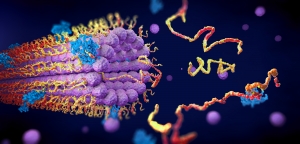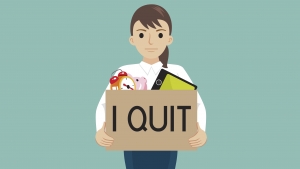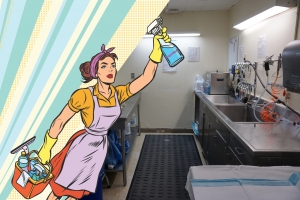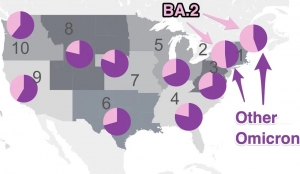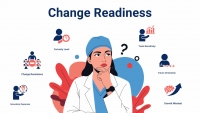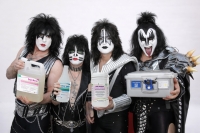Supply Chain Challenges, continued...
Last week we shared our supply issue of getting 4 new rooftop air conditioning units, which were scheduled for arrival on April 6th then finding out from the manufacturer of the AC units that it would be 42 weeks, at the earliest, for the units we needed. 2023 is another year of unknowns, and healthcare must rally around this one constant: as Covid 19 wanes, there are rising expectations of a return to “normal”. It’s time to start planning for what’s next.
Supply Chain Challenges: What can we do to address them?
Are you still experiencing supply chain issues? We are. That is why we stocked up on all the necessary supplies and raw materials we need to meet your needs for instrument processing. Nevertheless, what we learned, however, is that you cannot take anything for granted, such as obtaining necessary equipment or even air conditioning units, because they may not be available when you need them.
The miraculous potential of enzymes. Can they do more than clean?
In a hospital setting, drug resistant strains of bacteria are a growing problem. Staphylococcus is an especially opportunistic pathogen. When immunity is lowered, it can cause all types of infections. Most antibiotics, even the latest and greatest, are not effective against “super bugs”. Some staph infections no longer respond, or become resistant, to common antibiotics.
Spring cleaning, a safer way
Spring is here and with it a time of renewal. The time for spring cleaning is at hand, however, it’s become apparent that limiting exposure to various chemicals, toxins and pollutants is also important. We’ve learned much about the detrimental effects various chemicals have on our health. Many cleaning products marketed as “green,” “natural” or “eco-friendly” actually contain chemicals that are known carcinogens, endocrine-disruptors or lung and skin irritants. For instance, awareness around the negative reproductive and development effects of BPA (bisphenol A) in plastics and other unregulated chemicals like phthalates is growing, there is still a lot of work to be done to make sure that our health is protected.
Trailblazing Women in Manufacturing
Traditionally, women were trained to be teachers, nurses, members of the helping profession, supporting their male leaders. Then things changed during WWII when Rosie the Riveter was called by our country in crisis to contribute to manufacturing necessary equipment when our male population went to war...
Women in healthcare…
Healthcare has long been a path toward advancement for women—from the 1950s when Virginia Apgar, developed a standard to assess newborn health, to Tu Youyou’s Nobel Prize in medicine in 2015 for her discovery of a treatment for malaria. Women account for more than half of all entry-level employees in healthcare and have made great strides in advancing to management. And Case Medical as a woman owned and run medical device manufacturer counts itself part of the advancement of women in healthcare.
At Case Medical, Every Day Is Earth Day
Happy Earth Day! Your yearly reminder to respect the earth and show gratitude for our planet. The earth offers us so many beautiful places and important resources that need to be protected.
Case Solutions to the Rescue
Spring Cleaning is a good thing at home and in the SPD. “Nothing feels quite as satisfying as coming home to a house that's so clean it practically sparkles.” And isn’t the same true for our workplaces and certainly for healthcare facilities? Springtime is here, throw open the windows, let in the sunshine and fresh air. Spring is a time for renewal after all. We here at Case Medical offer this checklist to help
Something’s Coming
This week we continue with Covid19 by looking at its effects around the world. Covid19 has become the great mystery of our times. Why for instance here in the Northeast, home of Case Medical, are we seeing a rise in cases? It’s uncertain if it’s the beginning of a larger surge. William Hanage, an epidemiologist at Harvard, said “There’s definitely something coming, but depending on all the moving parts it might be a ripple relative to previous waves.”
Coping with a Wily and Agile Virus
Uncertainty is the thing that will keep you up at night. Parents know it well as they wait up for the kid who’s out past their promised return time. Farmers uncertain about the weather lose sleep over will there be too much rain or not enough. Consider your own uncertainty as you try to plan for your facility against a backdrop of pandemic, unexpected events, and a war in Europe.




